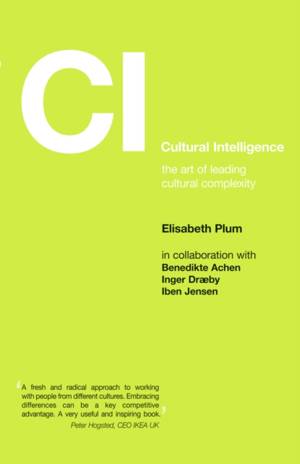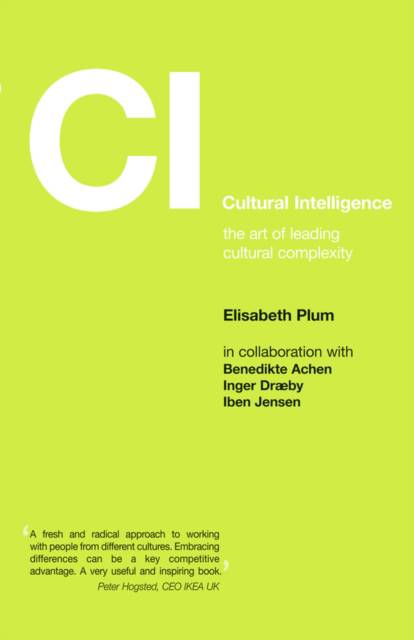
Je cadeautjes zeker op tijd in huis hebben voor de feestdagen? Kom langs in onze winkels en vind het perfecte geschenk!
- Afhalen na 1 uur in een winkel met voorraad
- Gratis thuislevering in België vanaf € 30
- Ruim aanbod met 7 miljoen producten
Je cadeautjes zeker op tijd in huis hebben voor de feestdagen? Kom langs in onze winkels en vind het perfecte geschenk!
- Afhalen na 1 uur in een winkel met voorraad
- Gratis thuislevering in België vanaf € 30
- Ruim aanbod met 7 miljoen producten
Zoeken
Omschrijving
What have international relations, mergers and cross-discipline innovation got in common? They share a dependence on the ability to create mutual understanding between people from different cultural backgrounds. As organisations become more global, and innovative development more urgent, developing the skills to get the best from difference becomes a necessity rather than an option. Cultural Intelligence (CI) is a progressive approach to thinking about culture that aims to provide the reader with a better understanding of what goes on when people with different cultural backgrounds meet, including the emotional drivers and irrational reactions. It introduces a way of thinking about culture as a dynamic and socially constructed phenomenon rather than a fixed set of rules, and suggests ways to benefit from cultural complexity using it as a resource and route to innovation. Cultural Intelligence is for leaders and specialists who have a commitment to bridging and benefiting from differences, and who are looking for alternatives to the traditional cultural concepts. This book gives an introduction to CI and to the dynamic approach to culture. It contains four themed chapters each of which provides an in-depth discussion of one cultural field. Cultural Intelligence contains numerous examples from the authors' teaching, research and consultancy work. It utilises experiences gained from work on the development of international groups from diversity projects, cross-disciplinary project management, mergers and other organisational developments. The book offers many ideas and methods on how to develop the cultural intelligence of an organisation.
Specificaties
Betrokkenen
- Auteur(s):
- Uitgeverij:
Inhoud
- Aantal bladzijden:
- 248
- Taal:
- Engels
- Reeks:
Eigenschappen
- Productcode (EAN):
- 9781904750611
- Verschijningsdatum:
- 1/10/2008
- Uitvoering:
- Paperback
- Formaat:
- Trade paperback (VS)
- Afmetingen:
- 129 mm x 198 mm
- Gewicht:
- 263 g

Alleen bij Standaard Boekhandel
+ 118 punten op je klantenkaart van Standaard Boekhandel
Beoordelingen
We publiceren alleen reviews die voldoen aan de voorwaarden voor reviews. Bekijk onze voorwaarden voor reviews.









